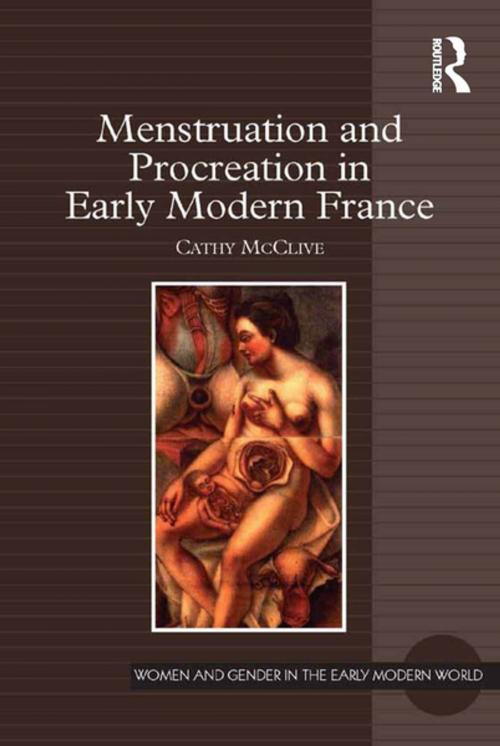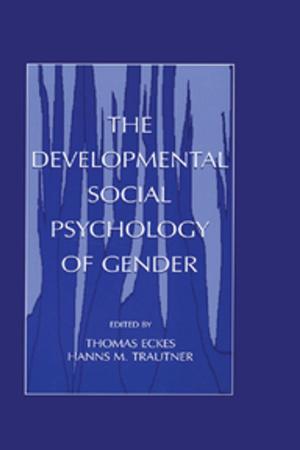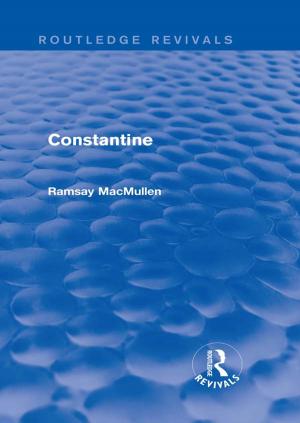Menstruation and Procreation in Early Modern France
Nonfiction, History, Modern, 17th Century, Health & Well Being, Health, Women&| Author: | Cathy McClive | ISBN: | 9781317097358 |
| Publisher: | Taylor and Francis | Publication: | March 3, 2016 |
| Imprint: | Routledge | Language: | English |
| Author: | Cathy McClive |
| ISBN: | 9781317097358 |
| Publisher: | Taylor and Francis |
| Publication: | March 3, 2016 |
| Imprint: | Routledge |
| Language: | English |
Early modern bodies, particularly menstruating and pregnant bodies, were not stable signifiers. Menstruation and Procreation in Early Modern France presents the first full-length discussion of menstruation and its uncertain connections with embodied sex, gender and reproduction in early modern France. Attitudes to menstruation are explored in three inter-linked arenas: medicine, moral theology and law across the sixteenth to the eighteenth centuries. Drawing on a wide range of diverse sources, including court records and private documents, the author uses case studies to explore the relationship between the exceptional corporeality of individuals and attempts to construct menstrual norms, reflecting on how early modern individuals, lay or otherwise, grappled with the enigma of menstruation. She analyzes how early modern men and women accounted for the function, recurrence and appearance of menstruation, from its role in maintaining health to the link between other physiological and bodily processes, including those found in both male and female bodies. She questions the assumption that menstruation was exclusively associated with women by the second half of the eighteenth century, arguing that whilst sex-related, menstruation was not sex-specific even at the turn of the nineteenth. Menstruation remains a contentious topic today. This book is not, therefore, simply a study of periods in early modern France, but is also of necessity an exploration about the nature and constitution of historical evidence, particularly bodily evidence and how historians use this evidence. It raises important questions about the concept of certainty and about the value of observation, testimony, expertise, the nature of language and the construction of bodily truths - about the body as witness and the body as evidence.
Early modern bodies, particularly menstruating and pregnant bodies, were not stable signifiers. Menstruation and Procreation in Early Modern France presents the first full-length discussion of menstruation and its uncertain connections with embodied sex, gender and reproduction in early modern France. Attitudes to menstruation are explored in three inter-linked arenas: medicine, moral theology and law across the sixteenth to the eighteenth centuries. Drawing on a wide range of diverse sources, including court records and private documents, the author uses case studies to explore the relationship between the exceptional corporeality of individuals and attempts to construct menstrual norms, reflecting on how early modern individuals, lay or otherwise, grappled with the enigma of menstruation. She analyzes how early modern men and women accounted for the function, recurrence and appearance of menstruation, from its role in maintaining health to the link between other physiological and bodily processes, including those found in both male and female bodies. She questions the assumption that menstruation was exclusively associated with women by the second half of the eighteenth century, arguing that whilst sex-related, menstruation was not sex-specific even at the turn of the nineteenth. Menstruation remains a contentious topic today. This book is not, therefore, simply a study of periods in early modern France, but is also of necessity an exploration about the nature and constitution of historical evidence, particularly bodily evidence and how historians use this evidence. It raises important questions about the concept of certainty and about the value of observation, testimony, expertise, the nature of language and the construction of bodily truths - about the body as witness and the body as evidence.















